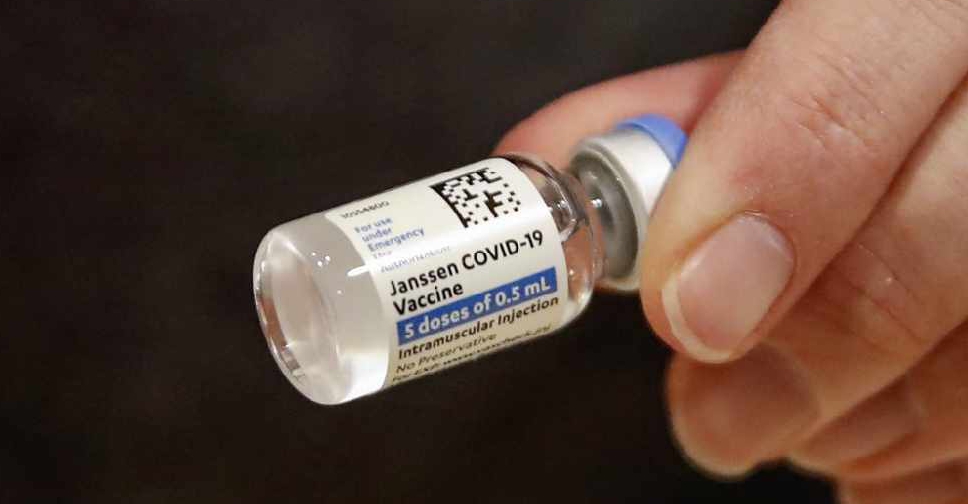
The European Union's drugs regulator on Thursday approved Johnson & Johnson's single dose COVID-19 vaccine, as the bloc seeks to speed up a stuttering inoculation campaign and boost its supplies.
It is the fourth to be endorsed for use in the EU after vaccines from Pfizer-BioNTech, AstraZeneca-Oxford University and Moderna, and is recommended for those over 18 years of age, the European Medicines agency (EMA) said.
It's the first single-dose shot.
The United States, Canada and Bahrain have also approved the shot, while South Africa is carrying out an expedited review.
"With this latest positive opinion, authorities across the European Union will have another option to combat the pandemic and protect the lives and health of their citizens," EMA's Executive Director Emer Cooke said.
Final approval by the European Commission was also issued later on Thursday.
The region is having difficulty taming a spike in cases driven by a more contagious variant of the coronavirus, with countries including Italy and France imposing fresh lockdowns.
J&J chief scientific officer Paul Stoffels described it as a "landmark moment" for the US drugmaker and the world as governments struggle to control the pandemic which has crushed economies and killed more than 2.7 million.
The shot, called COVID Vaccine Janssen after the J&J unit that developed it, will help bulk up EU vaccine supplies after a faltering rollout due to delivery delays from Pfizer and AstraZeneca.
J&J has agreed to deliver at least 200 million doses to the EU this year, including 55 million in the second quarter, with the first shipments expected next month.
Exact volumes are not clear though and the US drugmaker has told the European Union it is facing supply issues that may complicate plans to deliver the second quarter doses in full.
The news came as Norway and Denmark temporarily suspended the use of AstraZeneca's vaccine after reports of the formation of blood clots in some who have been vaccinated.
TRIAL DATA
In J&J's 44,000-person global trial, the vaccine was found to be 66 per cent effective at preventing moderate-to-severe COVID-19 four weeks after inoculation.
It was 100 per cent effective in preventing hospitalization and death due to the virus. In its statement on Thursday, the EMA said the vaccine was found to be 67 per cent effective two weeks after inoculation.
The side effects were usually mild or moderate and cleared within a couple of days after vaccination, it said. The most common ones were pain at the injection site, headache, tiredness, muscle pain and nausea.
Though many rival shots have reported a higher protection rate, J&J's vaccine could help boost thin EU supplies and simplify inoculation campaigns because it does not require a second dose or need to be shipped frozen.
Direct comparison between headline numbers reported by different drugmakers is difficult because their trials had different goals, and J&J's study was conducted while new, more contagious variants of the virus were circulating.
Its vaccine delivers immunity-building proteins through a weakened version of a common cold virus, similar to AstraZeneca's shot. J&J has also used the technology in its EU-approved Ebola vaccine.

 UK inquiry finds 'chilling' cover-up of infected blood scandal
UK inquiry finds 'chilling' cover-up of infected blood scandal
 Iranian President Raisi killed in helicopter accident, state media says
Iranian President Raisi killed in helicopter accident, state media says
 ICC prosecutor seeks arrest warrants for Israeli, Hamas leaders
ICC prosecutor seeks arrest warrants for Israeli, Hamas leaders
 Assange given permission to appeal against US extradition
Assange given permission to appeal against US extradition
 Israel intends to broaden Rafah sweep, Defence Minister tells US
Israel intends to broaden Rafah sweep, Defence Minister tells US




